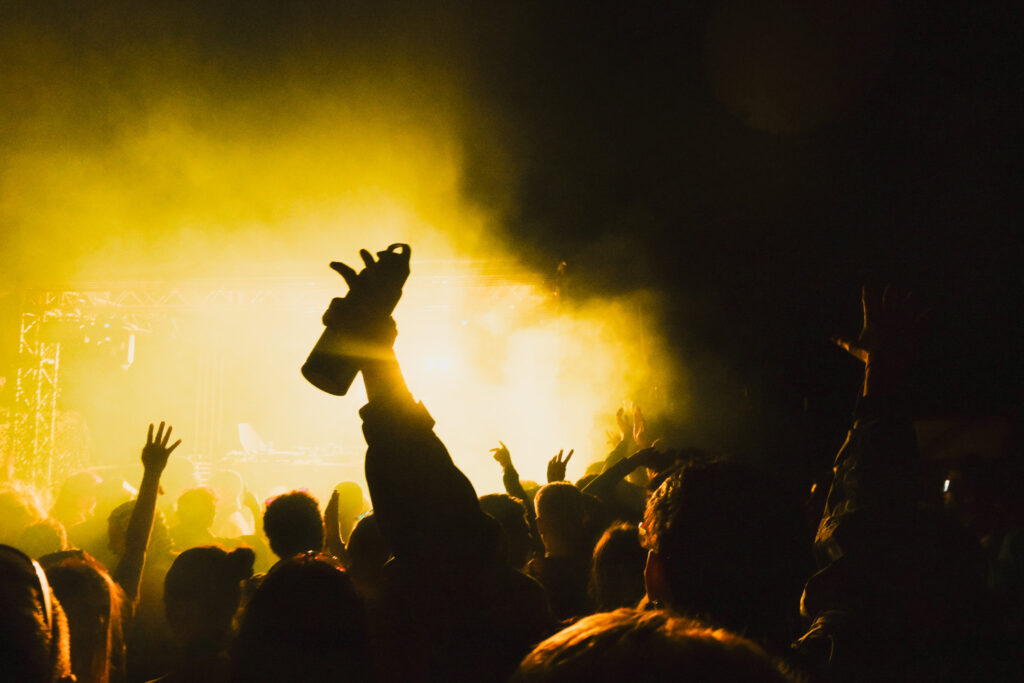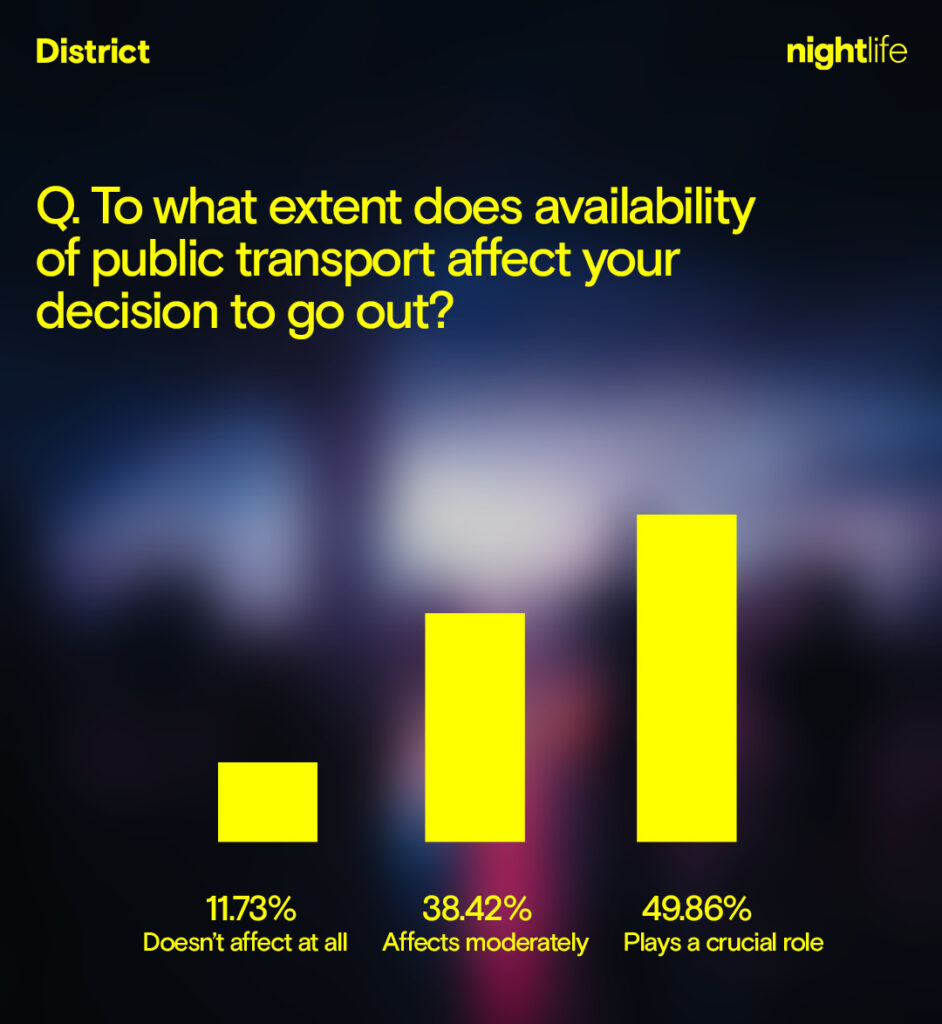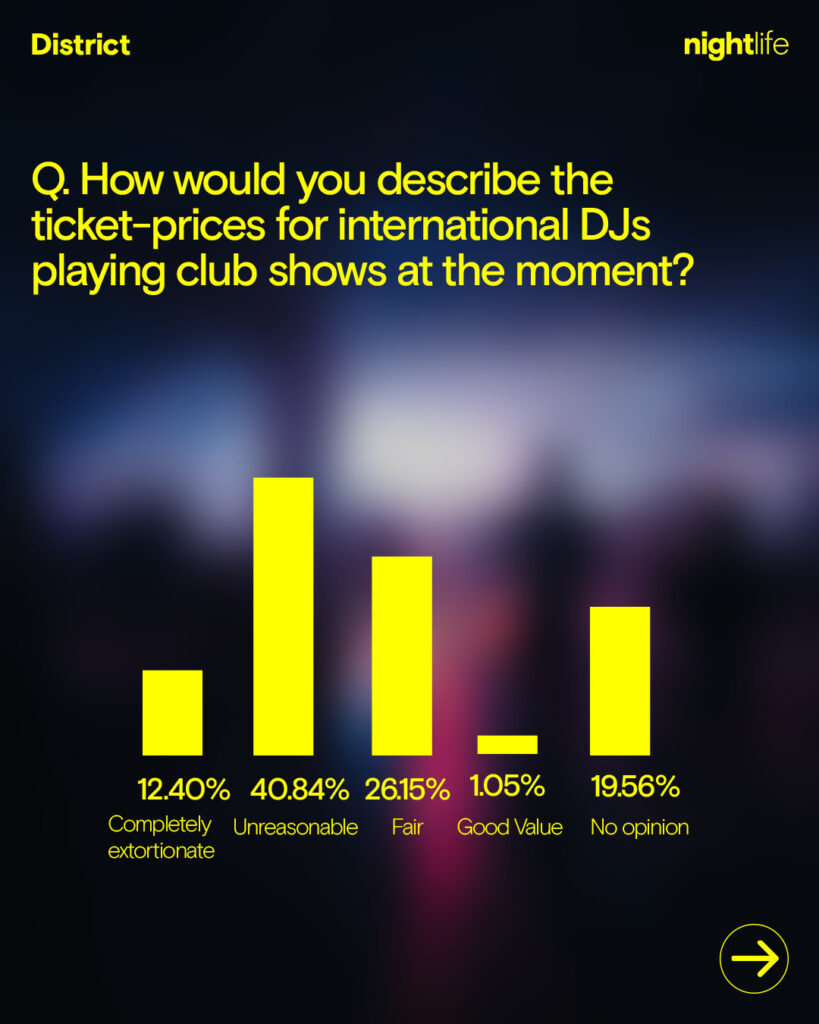This is the Most Critical Point for Nightlife in Irish History
Words: Izzy Copestake
Photography: Isabel Farrington
Nightlife in Ireland has had it rough, particularly since the pandemic. Broken promises over licensing laws, widespread closures and changing behaviour has strangled the nighttime economy. The circle of conversation is tiring, but it’s cliche for a reason. Ireland’s nightlife is under severe pressure. Yet the talent and desire for change in Ireland is refusing to be ignored. What’s more is, a change in legislation 20 years in the making, provides a genuine opportunity for change that we can’t afford to miss. So as part of our Nightlife series, we’re intent on breaking down the challenges faced by the nighttime economy in no uncertain terms and speaking to experts on how we can remedy the situation.
The Promise of Change
We’ve all heard it before: “Nightlife is dying”. Blame it on the age-old structural issues like an influx of hotels, extortionate rent, or archaic licensing laws and you wouldn’t be wrong. Four out of five Irish nightclubs have shut their doors for good since 2000. But the decline of nightlife is about more than just closures, it’s about people. The sterile socialising of the pandemic was bound to cast a shadow over the way people choose to have fun, but quantifying this is another matter.
For every anecdote about clubs not being the same since lockdown and promoters being unable to forecast ticket sales, there’s a contrasting statistic highlighting dance music’s soaring popularity and the talent coming out of Ireland.
Similarly, making conclusions from heads through the door and streaming numbers is reductive too. Ticket sales aren’t enough to paint a picture about people’s desire to dance and while we intuitively feel the landscape is drastically changing, it’s difficult to be precise about the DNA of these developments.
Clearly, the decline is complex. However, there is one thing for certain, people want change. According to our nightlife survey that received over 1000 responses, 92% are in favour of changing licensing laws in Ireland. While it’s not a silver bullet, extending opening hours is the kind of change that has potential to revolutionise nightlife in Ireland. Given the government actually already promised this exact thing this year, we’re in a position groups have campaigned 20 years for. So where are the changes?

Currently, if you want to listen to music after 3am in Ireland there are two options: endure a JBL crackling out ‘Liverpool Street In The Rain‘ in someone’s front room for the 3rd time in an hour, or stick your headphones on in the taxi home (probably safer). However, in October 2022, the government revealed that as part of the general scheme of the Sale of Alcohol Bill, clubs would be able to remain open until 6AM. This promise of change would allow Irish people have a taste of the same opening hours that the rest of Europe have enjoyed for decades. What’s more is, they later suggested that this would be in place for summer 2023. Disappointingly, a year after the changes were announced, Leo Varadkar confirmed that no modernisation would happen before Summer 2024. Sure, promises have been broken, but modernisation has been confirmed, and the promise of change finally has a government timeline. This timeline has been pushed back once, we can’t afford to let it be pushed back again. It’s easy to feel resigned to things staying the same, but we owe it to ourselves and to the people who have fought for years for exactly this change to break the cycle and push legislation through.
Roadblocks
The potential changes don’t come without roadblocks. There’s cultural and societal issues that need resolved as we work towards securing new legislation. The pandemic saw a lot of our screen times rise to a number few would be comfortable admitting. Social media equated to socialising and the closest thing Ireland got to clubbing for the best part of 2 years was a DJ live-streaming their sofa-set. So it’s not hard to imagine why clubbing can feel alien or appealing to some. 38% of people surveyed said their desire to go out since Covid restrictions had decreased, while over a third stated that they felt self-conscious dancing in a nightclub. Clubs are often seen as a place to unwind, away from the mundanity of everyday life. Without a strong clubbing culture and the rise in a generation’s interest in documenting everything post-pandemic with the rise of TikTok, it’s understandable to see why some people feel like they’re being watched.

Sadly, the dance floor isn’t the only place where people can feel eyes on them; 59% stated that the city centre feels unsafe walking to and from a night out. We’ve seen the rise in reports of violent attacks late at night in recent months. One solution to make the city centre safer is obvious: functioning public transport. 88% of people stated that the availability of transport impacts their decision to go on a night out. At best, it’s the difference between dropping 25 Euro on a taxi and having that extra money to spend in a nightclub, at worst it’s the difference between getting home safely, or not.
“From an infrastructure point of view, it’s been declining. But I think from a numbers point of view, it’s actually been growing”
Sunil Sharpe
Silo, Ireland’s largest electronic music venue, has attempted to solve this internally. The venue organise €5 buses back to Steven’s Green after every event. However, lack of public transport isn’t the only factor threatening people’s safety. Our survey revealed that 45% of people had been subject to anti-social or threatening behaviour on a night out and a staggering 24% of respondents had been sexually harassed. Venues and promoters need training and resources and young men in particular need to be held accountable for their actions. Unfortunately, this isn’t going to happen overnight but Empower Her* Voice have made an immediate impact with their #chalkback campaign. They’ve chalked the pavements outside venues where people have been assaulted and harassed and most recently, Wigwam responded by taking responsibility and becoming one of the first venues to appoint a Late Night Safety Officer while also retraining staff in collaboration with EH*V. This kind of community engagement is vital to restoring Ireland’s nightlife and making it accessible and welcoming to everyone.
Blueprints
In spite of the obstacles to accommodating the country’s nightlife needs, Ireland’s interest in electronic music has never been higher. “From an infrastructure point of view, it’s been declining. But I think from a numbers point of view, it’s actually been growing,” says Sunil Sharpe, a legendary Irish DJ and a key part of the Give Us The Night Campaign. Earlier this year, Jazzy hit number one in the Spotify Ireland Top 50 with a dance track, while DJs and producers Belters Only and blk. have sold out The 3arena.
However, in a city where people have to spend most of their paycheque on rent, and the cost of living grows, clubs should be an escape from a capitalist hellscape where landlords hold immense power and people struggle to get by. Instead, the very fabric of a nightclub is increasingly at the mercy of the very thing people are trying to escape; financial pressures.
After factoring in entry costs or the vast amount you have to part with to see a large international DJ, drinks, and then Dublin’s post 00:30 necessary evil: Taxis, you’ve probably spent about 60 quid – and that’s an optimistic assumption. It’d be different if you’d paid a lot but had a huge variety of options, but that’s not the case. 67% of respondents to our recent Nightlife Survey said they felt unsatisfied when returning from a night out in Dublin. The ceaseless closure of nightclubs has produced a vacuum of variety, the reason so many people feel like they are always having the same old night – is because they probably are. With a huge 93% of respondents saying they were unsatisfied with the variety of nightlife options.
However, there are blueprints to show we can do it differently. Sinéad O’Carroll and Sadhbh Carpenter of Puzzy Wranglers are one such act currently cutting their teeth at home. The duo platform new female and non-binary DJs on Dublin’s dance floors and cite Culture Night and the bank holiday weekend in October as great examples of how Dublin can still come alive. Through events in the 3Arena, Silo and BD Festival the October bank holiday weekend which saw over 20,000 people at electric music events. Likewise, Culture night saw a plethora of events in reinvented spaces and often unused venues standing as examples of what nightlife could look like. Not only in the volume of people attending but the variety of options on offer.

What’s also worth remembering, is the potential bill is not solely concerned with opening hours. Sunil hopes that new legislation would eradicate Special Exemption Orders, an additional ad hoc licence that is a huge burden on venues and open a world of possibilities for Ireland’s nightlife. “For any venue that wants to operate after normal pub hours you have to pay an additional nightly licence per night you have to pay 205 euro and you have to nominate the days in advance a month in advance. They’re not flexible you can’t transfer that to another date for instance. It’s particularly inflexible, you have to go to court every month, you have to pay solicitors fees.” Sunil says having a new, permanent licence would free venues of the financial burden and give them the time and money to experiment. Imagine clubs being able to open late every night of the week if they wanted and restaurants and other events spaces being able to host food or comedy until 11PM before taking an hour or two to reinvent their space into a dance floor.
“If and when these laws are enacted, it can give increased socialisation, increased safety on the streets due to lack of concentration of people. You’re going to have increased revenue for venues, added opportunities for local acts and overall you’re going to have a more accessible nightlife.”
Sunil Sharpe
Vital Months
The elimination of Ireland’s nightclubs isn’t just a blow to the night time economy, it’s a devastating cultural casualty. So many of us come of age under a strobe light on a sticky floor and more importantly, clubs are an essential safe place for many often excluded by the mainstream. Given the increased disconnection brewed by covid and an increasingly online and divided society, clubs are vital as some of the few third spaces we have left. DJ and activist from Give Us The Night Robbie Kitt agrees. “There’s a very clear case now that we can say we are so deprived of these things we can very clearly point to the decline in our access to appropriate social spaces, it’s now time where we can just say this is a desperate need, this is an existential need of these communities.”
With only just over 7 months remaining until the mooted introduction of new licensing laws, it’s essential that political parties are held accountable for introducing the legislation.
“People need to put pressure on all political parties not just the government parties. It’s clear the government haven’t delivered this reform. But what about the opposition parties, they need to stand up and ask ‘where is this reform, where is this bill, when are we going to see it?'”, Sunil says.
Our nightlife survey showcased that nightlife is shrivelling to a point where people often feel reluctant to go out, but bubbling underneath is a real desire for change. The October Bank Holiday Weekend shows there is a demand for exciting night time events and Culture Night highlights that we’re capable of providing options for everyone. Clearly, there’s underlying issues that need addressed, but eliminating Special Exemption Orders and accessing later opening hours has the potential to revolutionise Irish nightlife. We’ve seen the execution of these changes stumble once already and we need to make sure it doesn’t happen again. So find out who your local TD is and contact them, write to opposition parties about the issue, attend protests like Dance At The Dáil and follow @giveusthenight to stay up to date on the latest developments. This is the most important seven months for nightlife in Ireland, in recent history.



